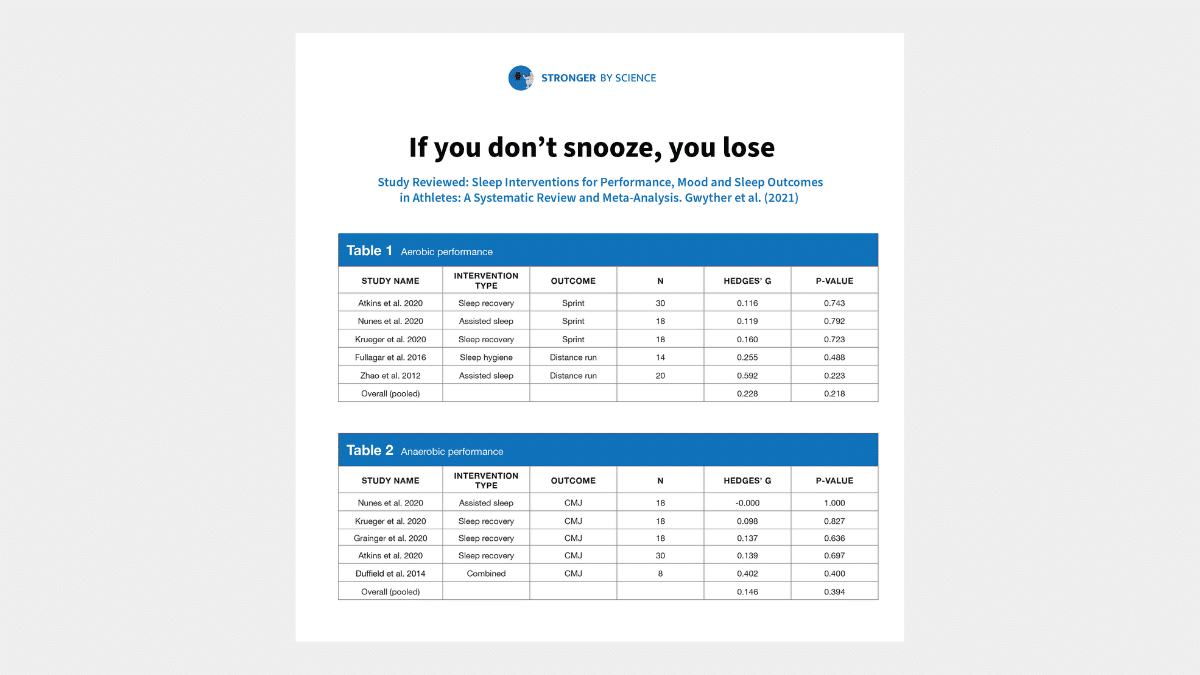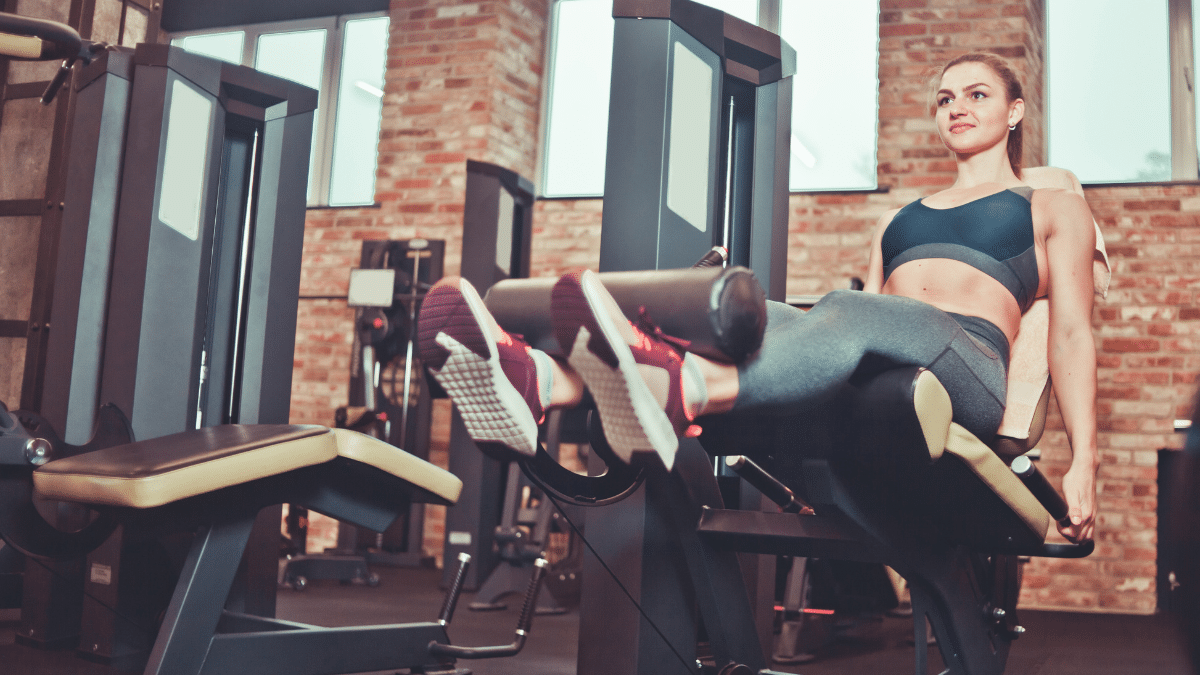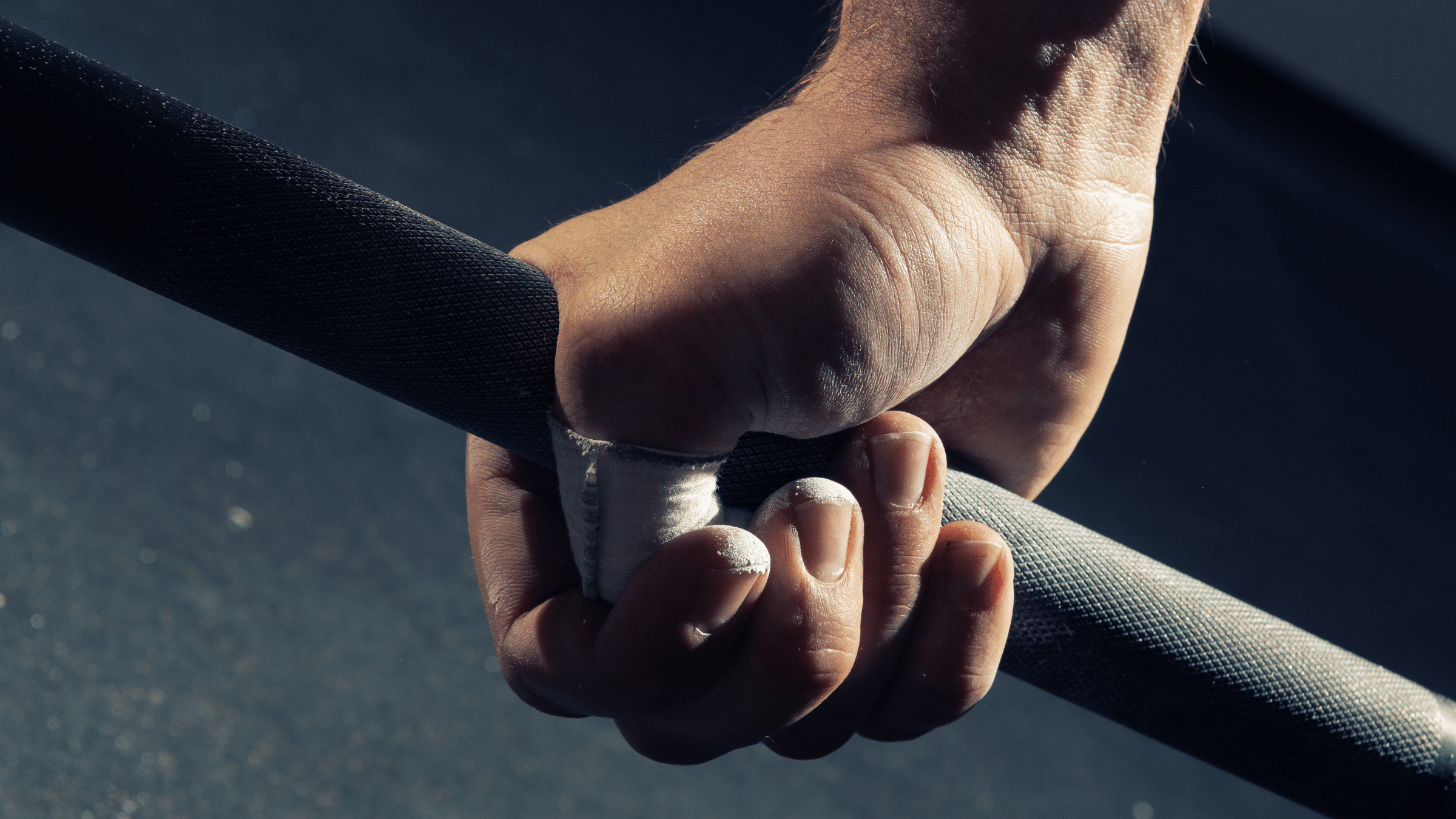Sleep is a very popular topic, which makes plenty of sense – we all sleep, we all establish and reinforce our own sleep-related habits and behaviors (intentionally or unintentionally), and we’re all regularly making decisions about when we should go to sleep and when we should wake up. In other words, it’s a daily health behavior that is directly under our control and inherently modifiable. In addition, it seems to have a pretty big impact on life outside of the gym. When we’re underslept, it tends to negatively impact our mood, our ability to perform cognitive tasks, and our subjective quality of life. Given the dramatic impact that sleep deprivation has outside of the gym, it’s natural to intuitively assume that sleep also has a major impact on outcomes that are directly related to our fitness goals. Nonetheless, intuition has led humans astray before, so it’s always good to verify our assumptions with scientific research.
In previous MASS articles, we’ve established that acute sleep deprivation can impair performance, particularly in the context of high-skill or high-volume work, and that the cumulative effects of chronic sleep insufficiency are generally more impactful than a single night of bad sleep. We’ve also seen that there’s a little bit of research indicating that sleep extension interventions can promote sport performance, that longer sleep duration is associated with better athletic performance, and that napping can acutely improve physical performance. Most recently, Greg wrote a research brief about a study indicating that getting at least eight hours of sleep was associated with better outcomes related to mood ratings, sleep quality, perceived energy levels, muscle soreness, and perceived training quality in college athletes. The presently reviewed meta-analysis expands upon these observations by evaluating the effects of actually implementing sleep interventions in competitive athletes.
The researchers systematically searched the literature for studies that reported changes in performance, sleep, and mood outcomes in competitive athletes completing sleep interventions. For some additional context, the types of interventions generally included things like sleep hygiene education, sleep extension, assisted sleep (using specialized garments or technologies to facilitate sleep), sleep recovery (that is, recovery-focused strategies involving things like cryotherapy or compression garments), or a combination of interventions. It’s also important to point out that the studies generally were not intended to target athletes with sleep problems or disorders. In other words, the studies were about trying to increase sleep quality and quantity in athletes, but not about rectifying severe sleep issues. The researchers ultimately found 27 articles that met their inclusion criteria. They provided a qualitative, narrative-style assessment of this literature, and followed that with a quantitative meta-analysis. However, in order to jam a bunch of different studies into a single statistical analysis, the studies have to meet a number of pretty strict criteria – otherwise, you’d be mathematically combining results from very dissimilar studies with very dissimilar data, which would be inadvisable. So, while the qualitative review included 27 studies, the quantitative meta-analysis contained only 12. Results were reported as the pooled effect size (ES; in this case, Hedges’ g, which is similar to Cohen’s d) and 95% confidence interval (95%CI).
Looking at the quantitative results first, the researchers found that sleep interventions improved subjective sleep quality (g = 0.62, 95%CI [0.21, 1.02]) while reducing sleepiness (g = 0.81, 95%CI [0.32, 1.30]) and negative affect (g = 0.63, 95% CI[0.27, 0.98]). However, interventions didn’t have a statistically significant impact on subjective sleep duration, objective sleep measures, or outcomes related to aerobic performance (Table 1) or anaerobic performance (Table 2). Having said that, null findings should be taken with a grain of salt; this was a fairly small meta-analysis that included some very different types of interventions, so statistical significance was going to be an uphill battle from the start. Looking at Tables 1 and 2, it’s interesting to note that all interventions had a neutral or positive effect on performance, with pooled effect sizes in the 0.146-0.228 range. In other words, these effect sizes were on par with some of the most efficacious dietary supplements out there, despite the lack of statistical significance. In terms of the qualitative review with an expanded pool of studies, the researchers concluded that “sleep hygiene, assisted sleep, and sleep extension interventions may be associated with improved sleep, performance, and mood outcomes.”
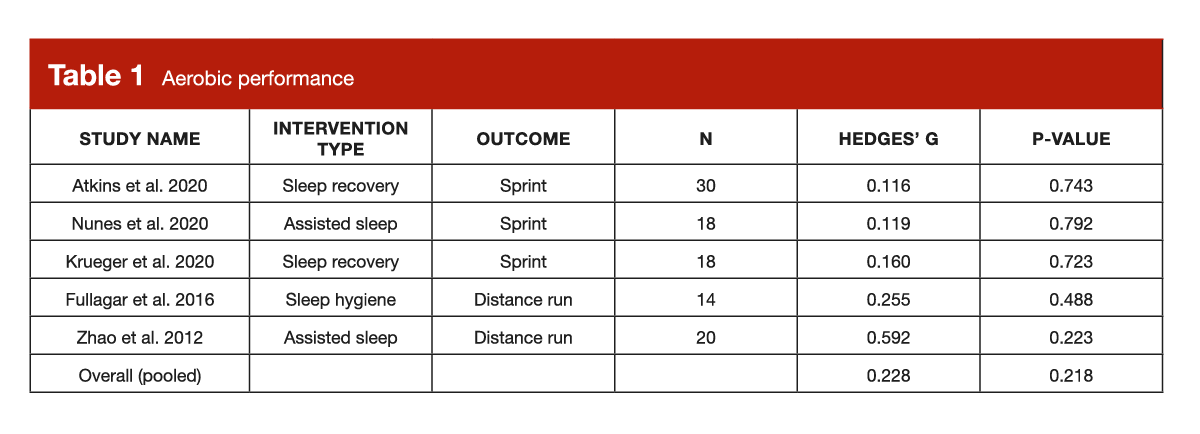
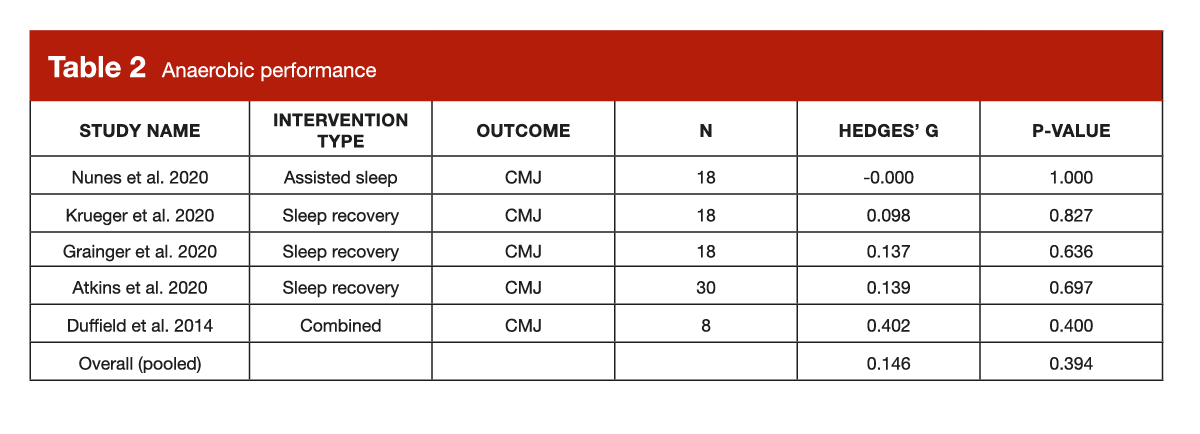
In summary, this study largely confirms what many of us likely expected: increasing your emphasis on high-quality sleep habits generally makes you feel a little better, and generally has a modest but positive impact on exercise performance. Nonetheless, I wanted to highlight this research because it relates to a fairly common question. I often hear from people who indicate that their sleep is “fine” (which usually just means they don’t get woken up throughout the night on a regular basis or suspect that they have a clinically relevant sleep disorder), but still wonder if they might benefit from an increased emphasis on their sleep habits. There are definitely plenty of gaps in this area of research (longitudinal sleep research is very hard to do), but the totality of the evidence seems to suggest that going from terribly insufficient sleep to adequate sleep has a pretty big impact on a wide range of important outcomes, and that small benefits are still observed when people with “fine” sleep aim to get slightly more or slightly better sleep.
Intuitively, one would assume that the magnitude of benefits begins to diminish as greater amounts of high-quality sleep are achieved, and there’s probably a practical limit whereby further sleep is hard to achieve for physiological reasons (surely we’ve all unsuccessfully tried to sleep when we simply aren’t tired enough to do it) or practical reasons (few humans have a hibernation-friendly schedule). Nonetheless, there are plausible mechanisms by which sleep could facilitate recovery, observational studies linking better sleep to better performance (and quality of life) outcomes, and studies linking sleep-related interventions to positive outcomes in athletes and non-athletes without substantial sleep issues at baseline. As such, it seems that fitness enthusiasts who overlook their capacity to improve their sleep quality or quantity are probably missing out on a nice opportunity to facilitate their fitness goals (including both performance and body composition) while having a positive impact on their mood and cognitive function.
I try not to make assumptions, but I’ll make an educated guess: you probably don’t want to hear a childless, self-employed person who works from home telling you that staying in bed for a few more hours is a practical, feasible intervention with absolutely no challenges or downsides. In many cases, there are elements of our sleep environment or sleep schedule that are simply outside of our control. Fortunately, the sleep-related toolbox is pretty deep, and you can select the specific strategies that are most feasible for your circumstances. If you have the luxury of exerting a tremendous amount of control of your sleep habits, a comprehensive sleep hygiene protocol in conjunction with a dedicated effort to spend at least 8-9 hours in bed each night (with a consistent daily sleep time and wake time) would go a pretty long way. If that’s not feasible, even taking a few items from the sleep hygiene checklist would probably be helpful, and napping could be utilized if your schedule doesn’t permit nighttime sleep extension.
When considering the relative cost, numerous upsides, and feasibility of various sleep interventions, there are some great opportunities to obtain meaningful benefits with minimal downsides. In a fitness industry with a tendency to generate and reinforce massive hype about fairly speculative and high-cost dietary supplements, effective sleep interventions with minimal cost (or no cost) seem to be flying under the radar, relatively speaking. Of course, the “sleep versus supplements” comparison presents a false dichotomy, but the underlying message provides a useful perspective. As someone who writes favorably about some supplements from time to time, I believe a huge number of lifters would benefit far more by tuning up their sleep habits than putting together an elaborate stack of supplements.
This Research Spotlight was originally published in MASS Research Review. Subscribe to MASS to get a monthly publication with breakdowns of recent exercise and nutrition studies.
Credit: Graphics by Kat Whitfield.

